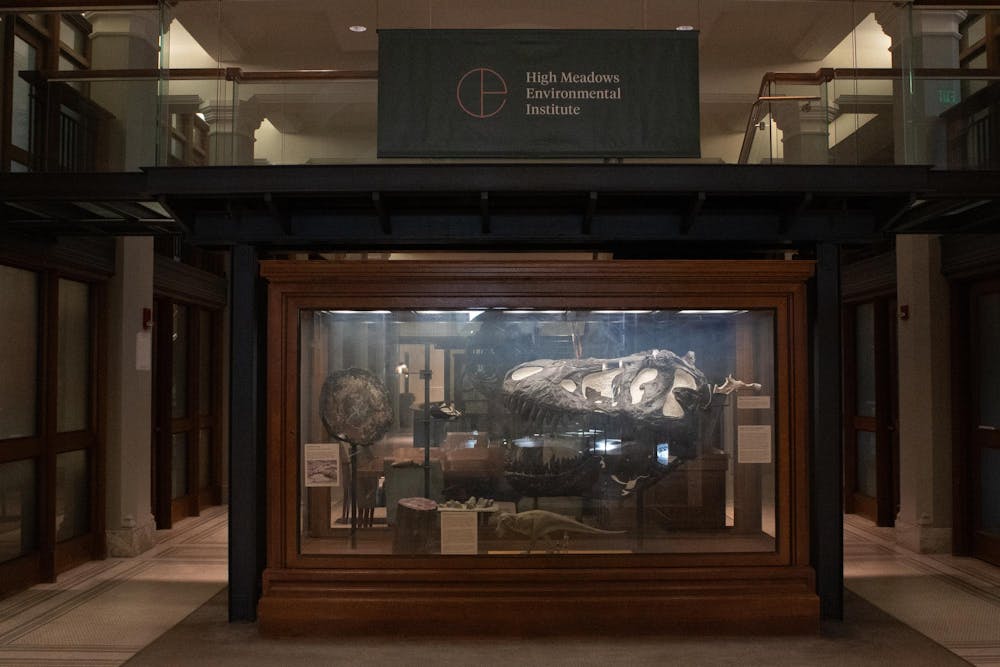Fossil fuel company BP will no longer fund the Carbon Mitigation Initiative (CMI), one of Princeton’s flagship climate research institutes, marking the end of one of the University’s most high-profile corporate partnerships.
Stephen Pacala, the initiative’s director, told The Daily Princetonian that BP and CMI had elected not to renew their contract after the current five-year term expires at the end of 2025.
“It has produced remarkable and influential work on solutions to the carbon and climate problem,” Pacala wrote. “But the world is very different from what it was 25 years ago. Neither party now seeks its continuation.”
BP did not return several requests for comment.
CMI, an independent academic research program spearheaded by the High Meadows Environmental Institute, works on alternative fuels, climate mitigation, and other elements of the net-zero transition. Key projects have included work on carbon capture, utilization, and storage (CCUS) and a landmark study that outlined pathways to achieve net zero emissions in the United States by 2050.
CMI researchers will look to other funding to support their research.
“The work currently supported by BP will remain a central pillar in many of our research groups, but supported by other funding in the new year,” professor Jonathan Levine, a lead investigator with CMI, said in a statement to the ‘Prince.’
Pacala wrote that the mutual agreement to end the relationship between BP and CMI “simply means a reduction in the funding of component projects, many of which will continue, and no annual meeting,” referencing an annual conference where BP executives and CMI researchers congregated to present research.

The partnership has supported a significant body of research on carbon mitigation strategies and is the longest running Princeton-industry partnership for climate research. While projects within CMI were financially supported by BP, allocation of funding was solely controlled by researchers at the University.
However, the fact that BP, one of the world’s largest oil and gas companies, would have a research relationship with Princeton was also a source of controversy, especially in the wake of the University’s divestment from fossil fuels in 2022.
An investigation by Congressional Democrats in 2024 argued that the company had used its partnership with Princeton to “advocate directly for energy and emissions policies like carbon capture without accountability for refusing to invest at scale.” NJ Spotlight News reported that communications staff at BP sought to “highlight how the Princeton findings align with key elements of BP’s strategy, including our focus on CCUS, hydrogen and key renewables, including wind and solar” in an attempt to influence government policy. Campus activists with Sunrise Princeton have pushed the University to cut ties with BP for several years.
These cuts come amid a larger contraction in funding available for University research broadly, but especially for climate related issues. In June, the Department of Commerce announced that it would end approximately $4 million in funding for Princeton research related to climate change, stating that the University’s programs “no longer align with the Trump Administration’s priorities.”

Levine said the end of BP’s funding will result in some researchers not having their contracts renewed, although the extent of reductions was unclear. The CMI website lists 19 principal investigators and 55 research staff and students.
While CMI does not currently have a new sponsor, Levine noted that the long term goal was to continue the group’s research with new funding.
“In the long term, we aim to find another sponsor for this critical research,” Levine wrote.
Vitus Larrieu is a senior News writer for the ‘Prince.’ He is from Pensacola, Fla. and typically covers community activism, the state of higher education, and construction and architecture.
Please send any corrections to corrections[at]dailyprincetonian.com.








